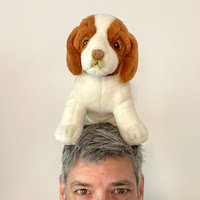On Self-knowledge
Picking up on that "how do I know what I think" quote -- let's start to tie a little bit of this into topics that might be more interesting to my usual crowd. One of the most powerful things you can do in your life is journal. I don't necessarily mean writing down your thoughts and feelings each day (though that can be extremely powerful) -- I mean recording anything, reliably. Keeping a food journal is a proven strategy for improving eating habits and losing weight. Keeping a training log helps runners break through mental and physical barriers. Following GTD and keeping track of next actions helps millions of people feel -- and be -- more productive. This practice has become known (though usually in its more technology-enhanced forms) as the Quantified Self.
Here's the thing: we, as human beings, are spectacularly bad at understanding what we do. Check the list of cognitive biases in Wikipedia (check it even if you've read it before, because you might be succumbing to a bias on the list) and you'll see a litany of ways that our brains fool us. Read any of Dan Ariely's books to learn about experiments that prove that we're more susceptible to external influence than we think, that we can rationalize away enormously surprising behaviors, and to get really depressed about our rationality or lack thereof.
Journaling (or, more broadly, measurement) actively confronts some of these problems by allowing us to get a more objective view onto ourselves and our behavior than we'd otherwise have. Even journaling, however, is imperfect. If I wait until after work to write down what I had for lunch (I left my food journal at home!), then I might forget the second serving of the bread basket. One option is to make the journal harder to forget; making it an iPhone app ensures that it'll be as close as my phone. The ubiquitous journal still requires effort, however, and allows me to inject subjectivity and error into the process. If I eat out after a hard workout, I might fudge the log on the grounds that "I earned a milkshake."
The real goal -- and as far as I can tell this is true for every Quantified Self domain -- is transparent, automatic tracking, with no manual intervention. Imagine how this might work for, say, running:
- First, no tracking of any sort. You go out and run for fun.
- Next, we add a pen-and-paper training log. After each run, you note how long it took, how far you went, etc.
- Now, we add a stopwatch and a GPS, to get precise measurements and to help prevent you from unconsciously improving your times and distances.
- Then, we switch over to Runkeeper or Nike+ so that the recording itself is automated.
- Finally, we slap on a Fitbit or Nike+ Fuelband and track movement constantly, whether running or not.
With this level of automated, objective measurement, we finally have the ability to see exactly what we're doing without the soft focus filter that clouds our eyes while we're doing it. The challenge then becomes analysis and response -- what does the data mean, and how should we change our future behavior to better meet our goals.
